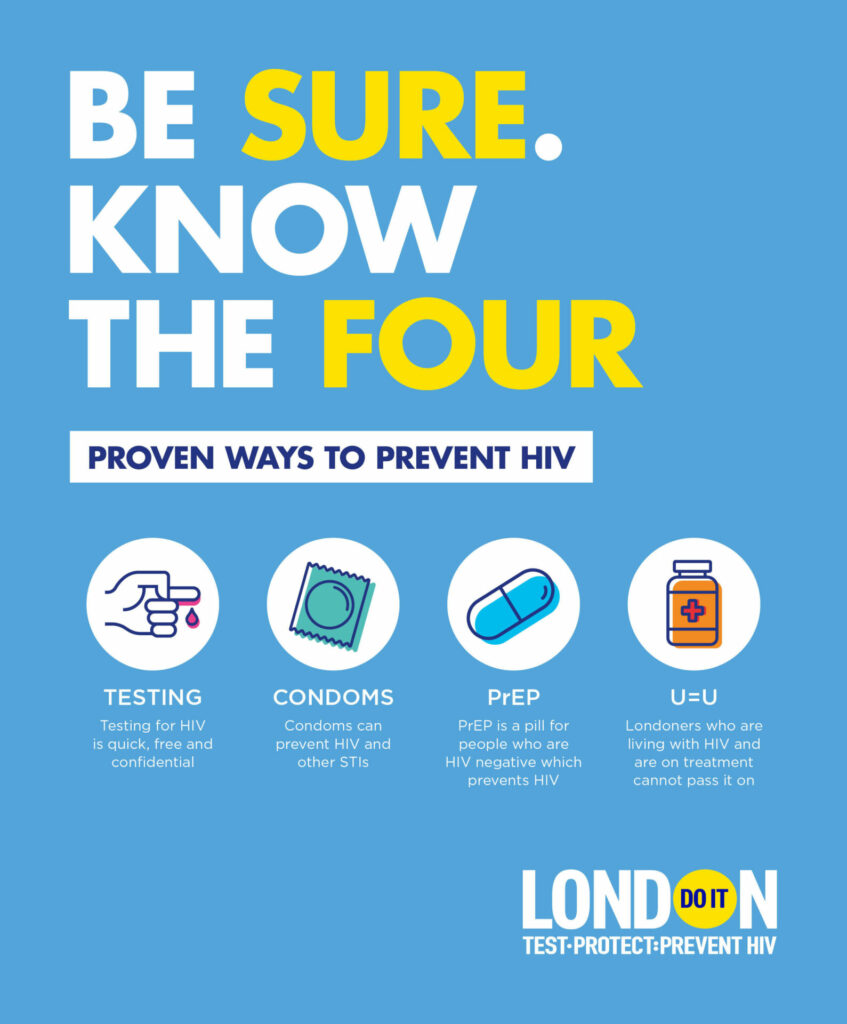Roberto Tovar spreads a message of hope after Valentine’s Day HIV diagnosis
In partnership with Do It London

London-based Roberto Tovar is a force within the city’s Latinx LGBTQ+ community.
As founder of Número de Serie, a sexual and mental health awareness platform with a focus on reducing stigma around HIV in the Latin American community in the UK, Roberto is a beacon of light shining all the way from London to his home town of Mexico City.
Here, he shares his advice on how to enjoy the season of love while staying safe and healthy by incorporating the four sure ways to prevent HIV (testing, condoms, PrEP, U=U) promoted by the Do It London initiative.
Valentine’s Day 2014 is a date I will never forget, as it was the day I received my HIV diagnosis. My journey up to that point started years earlier when complacency set in after being in a long-term relationship for many years. I’d lost touch with routinely getting tested and monitoring my sexual health. A public case in my community in Mexico City of someone developing advanced Aids was an urgent wake up call, so I finally went to get tested after years of putting it off.

Receiving my diagnosis initially filled me with disappointment and anxiety. But thanks to my community of LGBTQ+ friends, I quickly learned about life-saving antiretrovirals and how the science has advanced to enable people like me to live full, healthy lives without worrying about transmitting HIV. Their support gave me comfort during a challenging time.
“HIV prevention and awareness should be part of the conversation”
Ten years later, I aim to give back by sharing my story and experiences with the world, raising awareness of HIV as much as I can. Valentine’s is the day of lovers, right? So it’s a perfect excuse to talk about our sexual life/health. HIV prevention and awareness should be a topic throughout the whole year, not only on 1 December for World AIDS Day.
It’s really important to routinely get tested for HIV and other STIs – at least every 3-6 months if sexually active, even if you’re in a monogamous relationship. None of us should make assumptions or use past test results as an excuse to skip testing moving forward. Knowledge is power when it comes to managing your health, and we’re lucky to live in age with a lot of knowledge. Testing is quick, easy and usually free – and you can even order a test kit anonymously so you can test in the privacy of your own home.
“London has one of the best sexual health care systems in the world”
I think London has one of the best sexual health care systems in the world, so we as Londoners should make use of it. I’ve known the staff at my HIV clinic for years now, and I feel comfortable talking to them without fear of feeling judged – living a “shame-free” sexual life makes all the difference.
I also believe that before getting intimate with a new partner, we should create space for an open and honest dialogue about sexual health and testing history. We should go into these conversations gently and without judgement. If HIV comes up with a potential partner, it’s better to keep an open mind rather than write someone off solely due to their status.
“My sex/dating life hasn’t changed because of my status”
Meanwhile, science has brought huge advances enabling people living with HIV to enjoy healthy lives without worrying about transmission, so long as their viral load is suppressed through medication. Someone whose viral load is low enough as to be undetectable is unable to pass HIV on to someone else. This is known as U=U (Undetectable = Untransmittable). My sex/dating life hasn’t changed because of my status – I live an active/joyful sexual and social life and continue to take my medication – to look after myself, and my lovers.

Additionally, those who are HIV negative can protect themselves by using PrEP (pre-exposure prophylaxis). You can speak to your doctor to learn if PrEP may be right for you.
“Traditional prevention methods remain essential”
While the landscape has changed with U=U and PrEP, tried and true prevention methods like using condoms and practicing safer sex remain essential tools for avoiding HIV. They may seem old school, but please don’t disregard condoms, even if they’re not everyone’s cup of tea. They’re maybe the most effective method to protect you from other STIs too.
“Don’t underestimate threats from HIV or assume it doesn’t apply to you”
Finally, I believe the most important thing any of us can do is to value our health, life and relationships enough to make sexual safety a non-negotiable priority. Don’t underestimate threats from HIV or assume it doesn’t apply to you – it applies to everyone. I learned this lesson the hard way. Communication is key – creating space to talk about sexual health is important when meeting a new person. If you’re already seeing someone, look after each other’s health by talking about and taking proactive precautions together.
Do It London is an HIV prevention and awareness campaign for all Londoners by the London HIV Prevention Programme. The campaign was first launched in 2015 in response to rising rates of HIV transmissions in the capital. Visit doitlondon.org to learn more.

